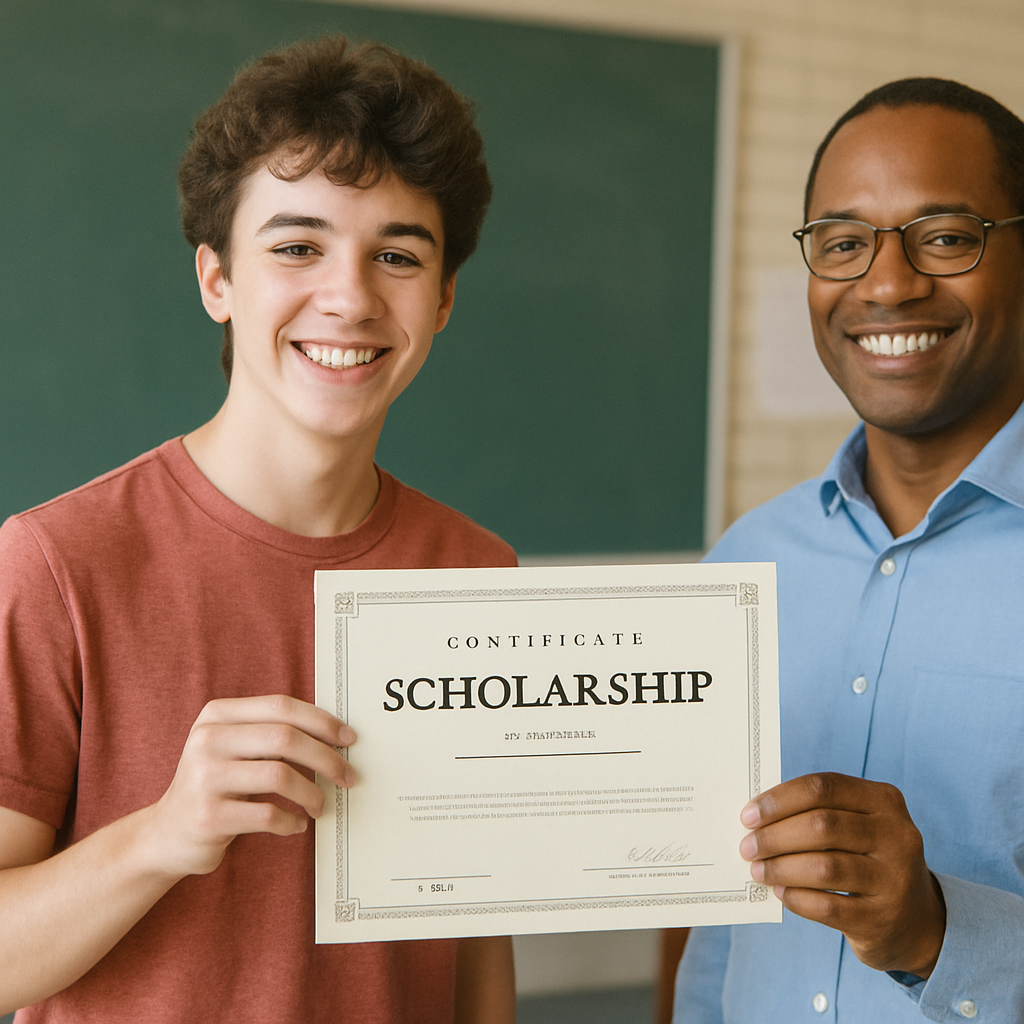
Demystifying Grant Writing
Understanding the Basics of Grant Writing
Grant writing involves creating proposals that request funding from governmental bodies, foundations, and other organizations to support various projects or initiatives. The objective of grant writing is to clearly communicate the purpose, necessity, and impact of a project, ensuring that funding organizations understand its value.
A well-crafted grant proposal typically includes several key components such as:
| Component | Description |
|---|---|
| Executive Summary | A brief overview of the project, its goals, and the funding required. |
| Introduction | Information about the organization or individual seeking the grant, including mission and achievements. |
| Problem Statement | A clear explanation of the issue that the project aims to address. |
| Goals and Objectives | Specific aims that are realistic and measurable. |
| Budget | A detailed financial plan outlining how the funds will be utilized. |
| Conclusion | A summary reaffirming the need for funding and the expected outcomes of the project. |
Understanding these components is essential for anyone involved in the grant writing process. Effective grant proposals not only provide clear information but also demonstrate a compelling narrative that engages the reader.
Importance of Grant Writing Certification
Obtaining a grant writing certification is beneficial for individuals seeking to enhance their skills and credibility in the field. This certification signifies a professional level of expertise and a commitment to best practices within grant writing.
The importance of grant writing certification can be highlighted through the following benefits:
| Benefit | Description |
|---|---|
| Increased Credibility | Certified individuals are often viewed as reliable and knowledgeable, increasing their appeal to funding organizations. |
| Networking Opportunities | Certification programs frequently provide access to key connections in the industry, including peers and potential funders. |
| Enhanced Learning | Many certification programs offer comprehensive training on the latest trends and techniques in grant writing. |
| Competitive Edge | Holding a certification can distinguish professionals in a competitive job market, making them more attractive to employers. |
Individuals interested in understanding more about different aspects of grants can refer to articles like what is a grant and how to apply for a grant. Investing in grant writing certification not only enhances personal skills but also opens doors to funding opportunities for non-profit organizations and business initiatives.
Benefits of Grant Writing Certification
Obtaining a grant writing certification offers significant advantages for non-profit and business owners seeking funding, as well as students looking for grant opportunities. The benefits are twofold: gaining credibility and trustworthiness, and accessing exclusive opportunities.
Credibility and Trustworthiness
A grant writing certification establishes an individual’s credibility in the field. When applying for grants, funding organizations often prefer to work with certified professionals. This certification serves as a validation of one’s skills, knowledge, and commitment to adhering to high standards in grant writing. It reassures potential funders that the proposals submitted will be well-structured and thoroughly researched.
Table 1 outlines the importance of credibility in grant applications based on survey results:
| Factor | Percentage of Funders who Value This Factor |
|---|---|
| Certification | 84% |
| Experience | 78% |
| Proposal Quality | 95% |
| Clarity of Goals | 88% |
Having a certification not only builds trust among funders but also enhances an individual’s professional reputation. It can help establish networking connections in the sector, leading to future collaborations and referrals.
Access to Exclusive Opportunities
Certification can open doors to exclusive grant writing opportunities. Many organizations and agencies only consider applications from certified grant writers for their funding programs. These exclusive opportunities may include specialized workshops, training sessions, and access to unique databases of available grants.
Table 2 illustrates the types of exclusive opportunities available to certified grant writers:
| Opportunity Type | Description |
|---|---|
| Specialized Workshops | Focused training on niche grant topics |
| Advanced Networking Events | Access to industry leaders and grantors |
| Exclusive Grant Databases | Lists of grants available only to certified writers |
Furthermore, those with a grant writing certification may benefit from priority consideration or special incentives in competitive grant processes. This can significantly increase their chances of securing funding.
Overall, pursuing grant writing certification is a strategic decision for those involved in the non-profit and business sectors. It enhances credibility, opens avenues for unique opportunities, and helps deepen one’s understanding of the complex grant writing process. For more insights on the various aspects of grants, check out our article on what is a grant.
Steps to Attain Grant Writing Certification
Acquiring a grant writing certification can enhance one’s proficiency and improve chances for securing funding. The process involves a few key steps, which include researching programs, understanding eligibility requirements, and completing necessary training and assessments.
Researching Certification Programs
Before beginning the certification journey, individuals should thoroughly research available certification programs. Different programs offer various levels of training, focus areas, and recognition within the industry.
Considerations for selecting a certification program include:
- Accreditation status
- Curriculum relevance
- Format of delivery (online, in-person)
- Duration of the program
Here is a comparison of some common program features:
| Feature | Program A | Program B | Program C |
|---|---|---|---|
| Accreditation | Yes | Yes | No |
| Duration | 6 months | 3 months | 12 weeks |
| Delivery | Online | In-person | Hybrid |
| Cost | $600 | $350 | $450 |
Researching thoroughly can guide individuals toward a program that best fits their goals and learning preferences.
Meeting Eligibility Requirements
Each certification program establishes its own eligibility requirements. Typically, these may include educational qualifications, prior experience in grant writing, or knowledge of the grant writing process.
Common eligibility criteria can involve:
- A related degree (e.g., nonprofit management, business administration)
- A specified number of hours in grant writing or related activities
- A demonstrated understanding of the basics of grant writing
Prospective candidates should review the specific requirements for each certification program to ensure they meet all necessary conditions before application.
Completing Training and Assessment
Once the appropriate certification program has been chosen and eligibility confirmed, candidates will need to complete the training component. Training may include coursework covering topics such as the grant writing process, budgeting for grants, and developing compelling narratives.
Typically, the training structure may involve:
- Online modules and quizzes
- Group workshops or discussions
- Individual assignments or case studies
Many programs culminate in an assessment to test the knowledge and skills acquired during training. This may take the form of:
- A comprehensive exam
- A practical assessment requiring submission of a grant proposal
- Peer review of provided grant writing examples
Successfully completing these components leads individuals to achieve their grant writing certification, enhancing their capabilities to pursue funding opportunities. For those interested, engaging in grant writing workshops and exploring grant writing services can further advance their skills.
Building a Strong Grant Writing Portfolio
Creating a compelling grant writing portfolio is essential for individuals seeking to establish credibility and demonstrate their skills in grant writing. A well-structured portfolio showcases practical experience and successful grant applications, making it easier to attract potential clients or funding opportunities.
Gaining Practical Experience
One of the first steps in building a strong portfolio is acquiring hands-on experience in grant writing. Practical experience allows individuals to apply theoretical knowledge and develop skills that are critical for crafting winning grant proposals. There are several ways to gain this experience:
| Experience Type | Description |
|---|---|
| Volunteer Work | Assisting non-profits or organizations with their grant applications. |
| Internships | Participating in internships with organizations focused on grant writing. |
| Collaborative Projects | Working alongside seasoned grant writers or project managers on proposals. |
By leveraging these opportunities, individuals can enhance their writing skills and gain insights into the nuances of the grant writing process.
Showcasing Successful Grant Applications
A strong portfolio is not only about gaining experience but also effectively presenting successful grant applications. Including examples of funded proposals demonstrates competence and results. When showcasing these samples, consider the following elements:
| Element | Importance |
|---|---|
| Project Title | Clear identification of the project for context. |
| Funding Amount | Highlighting the amount awarded shows the scale of funding. |
| Granting Agency | Indicating the funding organization adds credibility. |
| Summary of Purpose | A brief overview of the project’s goals and objectives. |
| Outcomes Achieved | Showcasing measurable results or impacts of the funded project. |
Including a variety of grant writing examples can illustrate versatility and adaptability in approaching different types of grants, be it government funding, private foundations, or corporate grants.
Incorporating real-life experiences and successful applications will not only enhance the portfolio but also prepare individuals for future grant applications and increase their chances of obtaining the necessary funding. For those looking to refine their skills, attending grant writing workshops can also provide invaluable practical training and guidance.
Maintaining Certification and Continuous Learning
Obtaining grant writing certification is just the beginning of a professional journey. To remain competitive and effective in the field, individuals must commit to ongoing education and skill development. This section outlines key strategies for maintaining certification and embracing continuous learning.
Staying Updated with Industry Trends
The world of grant writing is continually evolving, influenced by changes in regulations, funding opportunities, and best practices. Staying informed about these shifts is essential for grant writers to remain relevant. Here are effective ways to keep up with industry trends:
| Method | Description |
|---|---|
| Subscribing to Industry Publications | Regularly read newsletters and journals that focus on grant writing and funding. |
| Participating in Webinars and Online Courses | Engage in virtual learning experiences that cover the latest trends and techniques. |
| Joining Professional Associations | Become a member of organizations dedicated to grant writing, which often provide access to valuable resources. |
| Networking | Connect with other grant writers to exchange ideas and insights on emerging trends. |
Individuals should also explore articles on topics such as grant writing resources and basics of grant writing to deepen their understanding and expertise.
Engaging in Professional Development Opportunities
Continuous professional development is crucial for enhancing grant writing skills. Participating in workshops, seminars, and training sessions can provide practical tips and insights. Below are several opportunities for growth:
| Opportunity | Description |
|---|---|
| Grant Writing Workshops | Attend hands-on training sessions to improve writing skills and learn new strategies. Consider exploring available grant writing workshops. |
| Certification Renewal Courses | Some certifications require periodic renewal through additional coursework. Check if your certification program offers such options. |
| Mentorship Programs | Seek guidance from experienced grant writers to gain personalized feedback and advice. |
| Online Learning Platforms | Utilize platforms that offer courses covering various aspects of grant writing and funding strategies. |
By actively engaging in these professional development opportunities, grant writers can enhance their skills and adapt to the changing landscape of funding. Pursuing ongoing education not only fortifies their credentials but also increases their ability to secure funding, ultimately benefiting their organizations. For insights on effective strategies, refer to how to apply for a grant and grant writing examples.





